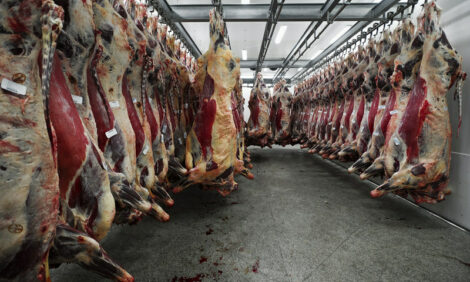Meat Industry Challenge on Flawed “Cancer” Report
UK - A high profile report which suggests possible links between meat and cancer has been found to be significantly flawed by leading academics.
 11 February 2010
11 February 2010
 4 minute read
4 minute read
![EBLEX]()
The World Cancer Research Fund (WCRF) 2007 report has been consistently cited as proof of a perceived link between red and processed meat consumption and risk of colorectal cancer (CRC). However, despite now privately acknowledging a number of errors and that these will be taken into consideration as part of an ongoing review, the charity has said it is not planning to inform the public and policymakers directly of the flaws.
Both Dr Stewart Truswell, of the University of Sydney, and Dr Dominik Alexander, of Exponent, whose review was published in the American Journal of Clinical Nutrition, have highlighted a number of errors and omissions in the WCRF review of red and processed meat and CRC. These included analytical inconsistencies and data extraction errors in the evidence presented which could have contributed to an overestimate of the association between eating red meat and the risk of CRC.
The conclusion of Dr Alexander’s review was that “there is no conclusive evidence of causal relationship” between eating meat and CRC.
Based on this evidence, EBLEX Chairman John Cross and counterpart at BPEX Stewart Houston, wrote to Professor Martin Wiseman, medical and scientific adviser at WCRF, asking WCRF to acknowledge publically the flaws in the report. The Scientific Advisory Committee on Nutrition (SACN), which informs Government policy, is currently considering what dietary recommendations to make on iron and health – and the WCRF report is heavily quoted in its draft report, leading to fears that misleading advice based on flawed evidence will be given to the public.
However, a response from Professor Wiseman on behalf of WCRF said they had no plans for “any formal contact with the FSA or SACN”, and no meeting with meat industry leaders is needed at this time. The report is still being issued without any acknowledgement of errata.
EBLEX Sector Director Nick Allen briefed industry stakeholders, including the National Farmers Union, National Beef Association, National Sheep Association, Association of Independent Meat Suppliers, British Meat Processors Association and Livestock Auctioneers’ Association, on the situation at a special meeting last week. All are now considering further action.
“In one diagram alone, there were six basic factual errors,” said John Cross, EBLEX chairman.
“Privately, WCRF has acknowledged the errors in the report, but it seems reluctant to acknowledge these errors in an open way.
“The published report remains intact and WCRF will not consider publishing anything new until sometime later this year when their own review is completed. They will not meet with us before then. They also refused to contact FSA or the SACN formally to highlight the problems.
“Of course people will say ‘well you would say that’ as we work on behalf of thousands of English beef and sheep producers, but the fact is that people are still being misled by this report two years after it was published.”
Stewart Houston, chairman of BPEX added: “In the meantime, this report continues to be quoted as evidence of a possible causal link between eating meat and CRC – health professionals in particular will be using it as a point of reference – something we believe is not borne out by the scientific evidence presented.”
Since the publication of the report in 2007, representatives of the National Cattlemen’s Beef Association (NCBA) in the United States have raised significant concerns, alerting the US Department of Agricultural to the inaccuracies ahead of a review of their dietary guidelines.
Leading cancer specialist Prof Karol Sikora said: “Whilst vegetables and fruit contain protective factors, there is almost no evidence that red meat itself actually causes cancer.
“The WRCF do seem to be following an anti-meat crusade writing their conclusion first and then looking for supportive evidence. This is extremely misleading for the public who are thoroughly confused by being bombarded with mixed messages. If there is no clear conclusion then definitive recommendations should be avoided.”
NFU livestock board chairman Alistair Mackintosh said: “I am appalled that flawed evidence has been used to draw links between eating red meat and cancer. The NFU is calling for the World Cancer Research Fund to recognise the discrepancies that have been highlighted and accept that these errors could have potentially contributed to an overestimation of the association between eating red meat and the risk of colorectal cancer.
“I understand that the WCRF has privately accepted the flaws but it is unwilling to inform policymakers direct. This is doing a huge disservice to our industry and people must be made aware of the true facts as soon as possible. Future policy-making, which affects us all, could be distorted by these flawed assumptions.
“The NFU always stated that eating lean red meat has an important role to play in a healthy balanced diet. It is a traditional part of the British diet and is enjoyed by most of the population.”
Further Reading






